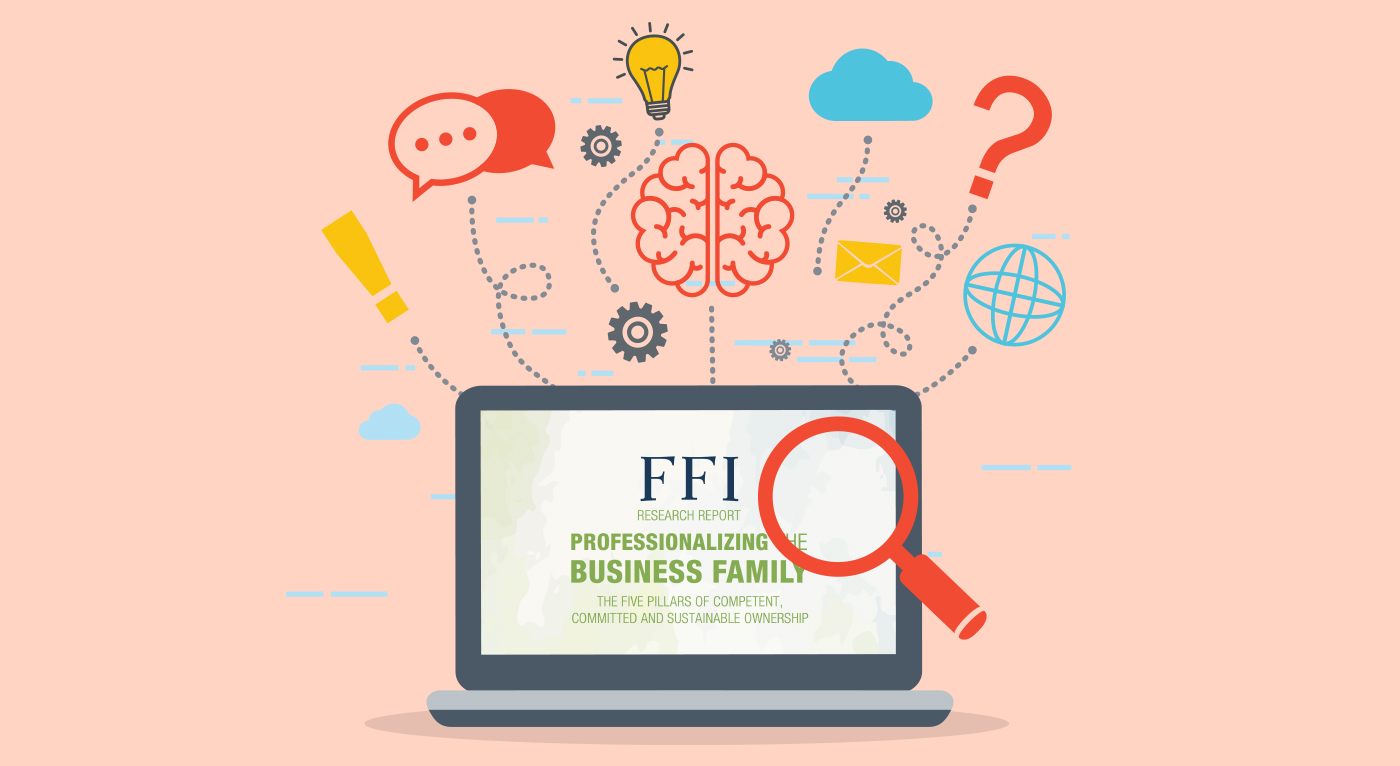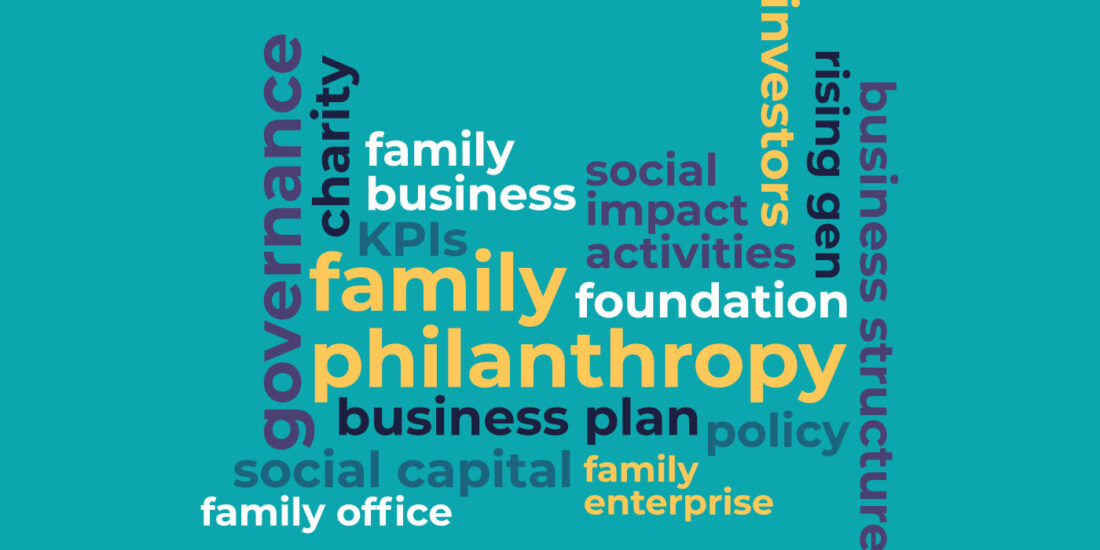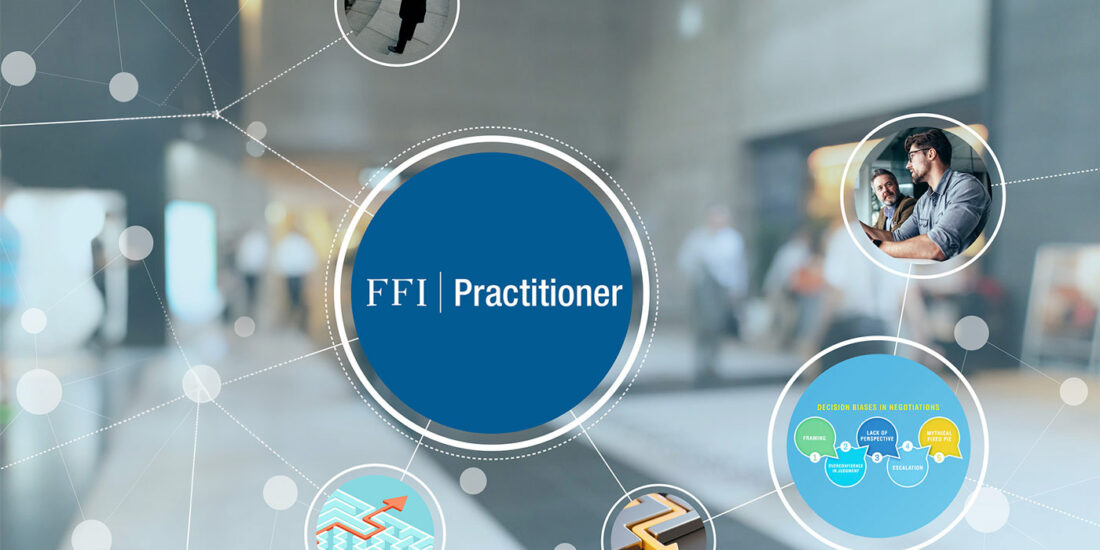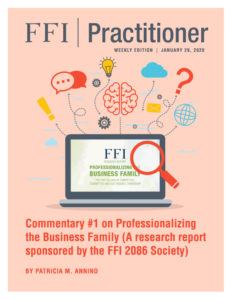
View this edition in our enhanced digital edition format with supporting visual insight and information.
This week, we are pleased to share the first in a series of commentaries by members of the FFI 2086 Society about a recently released report sponsored by the group titled, “Professionalizing the Business Family: The Five Pillars of Competent, Committed and Sustainable Ownership.” Thank you to Patricia Annino for kicking off this series by sharing her reactions to the report’s findings and integrating real-life examples from her own professional experience.
Professionalizing the Business Family: The Five Pillars of Competent, Committed and Sustainable Ownership is a thoughtful and thought provoking, yet very practical analysis of what family business advisors should focus on when working with families to professionalize.
This research report summarizes and hammers home points that I have observed as fundamentally important when advising family businesses.
Some key takeaway points include the following:
- Traditional professionalization “off the rack” tools, such as family protocols and family constitutions, should be viewed as the “tip of the iceberg”—only effective if other, more foundational values and goals are in place—since these tools can damage a family if applied superficially, tending to rigidify existing conflicts and impose inflexible structures and processes on future generations. Too many times, advisors use “one size fits all” solutions that do not consider the diversity of the family.
I have collaborated with family business advisors who start a project with the final conclusion of the exercise in mind and put forward “stock documents” as examples to work toward. The use of stock documents sets a bias for a conclusion and undercuts the family’s ownership of the journey and the evolutionary process through which appropriate working governing documents might evolve.
- The focus should be on the process of working with the family to develop tools that are appropriate for them, working with a perspective that is unique to this family—not a stock form that the advisor uses for all clients.
Over the years I have also observed that there are always two different and equally important components of advisory work: the organizational (what documents say) and the operational (how the documents are operated). Far more problems arise from the operational component than from the organizational component. In my experience the only way to stay ahead of the inevitable operational issues is to make sure that the process itself is robust, and that communication is ongoing and clear. When communication is ongoing, the issues and problems that will arise on a regular basis have an opportunity to be dealt with in real time.
- Structural solutions never resolve a problem on their own. On the contrary, they can exacerbate the underlying issue. Strong family relationships make family processes productive and sometimes make formal structures superfluous.
As an attorney who has worked with many family businesses over the years, I have observed this: a family member is much more comfortable coming into my law office to discuss a matter than going to a therapist, psychologist, or mediator. I have learned that it is important to be astute and to ask many questions, as the topic of conversation (although it might be framed in legal or accounting terms) is hardly ever a legal or accounting issue. It is almost always more likely to be a sibling or parent/child issue dressed up in legal or accounting language. Addressing a client’s question, without understanding that ultimately it all comes down to family dynamics, can lead to disastrous results.
- Family harmony matters, and investing considerable resources to strengthen family members’ communication and conflict management skills should be a priority.
Over the years I have seen that when families are able to deal with the issues head-on, to openly discuss them and to explore solutions to the problems at hand, they are very likely taking positive steps in the process. In many families, these behaviors are not automatic, but rather are skills that need to be developed. The astute family who invests time and money in this process before any significant issues arise is always grateful that they did so when the significant issue does emerge.
- Ownership competence development is a responsibility, not a choice.
It has always seemed to me that investing in lifelong learning for the family and the business is fundamentally important for the success of the family and its business. Every family member has a different level of competence, and it is up to each individual to determine where he or she is on the journey and where they want to be. Individuals have the right to choose the velocity of their power and their education. These choices are not necessarily intuitive and sometimes need to be pointed out by those who are more objective. There can be a feeling, both in the family and in the individual family members, that they have already received enough education and do not need to invest in lifelong learning. However, as we all evolve and change, there is always more to learn, and it is far more efficient to learn from those who know more. Investment in practical skills, such as understanding financial reports and metrics, can be offered in either a one-on-one or a “boot camp setting.” The learning can start when the family members are young or later in life. An organized approach to lifelong learning for family business owners on their individual and collective competences is money and time well spent.
This research report is very robust and worth reading several times. I took the time to read it in detail three times, and each time different nuances and points became clearer. I consider it an important must-read for those who advise families and family businesses.
About the Contributor
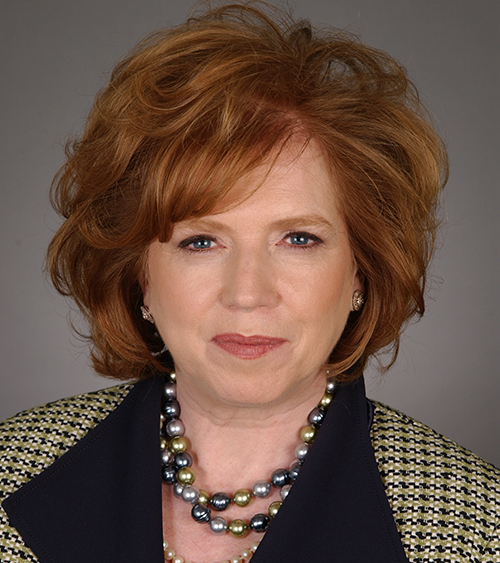 Patricia M. Annino is an attorney with Rimôn, P.C. in Boston. A former member of the FFI board of directors, a founding member of the 2086 Society, and a frequent contributor to FFI Practitioner, she has been voted by her peers as one of the Best Lawyers in America, Estate Planner of the Year and EuroMoney’s “Best in Wealth Management — USA.” Patricia can be reached at [email protected].
Patricia M. Annino is an attorney with Rimôn, P.C. in Boston. A former member of the FFI board of directors, a founding member of the 2086 Society, and a frequent contributor to FFI Practitioner, she has been voted by her peers as one of the Best Lawyers in America, Estate Planner of the Year and EuroMoney’s “Best in Wealth Management — USA.” Patricia can be reached at [email protected].

View this edition in our enhanced digital edition format with supporting visual insight and information.


